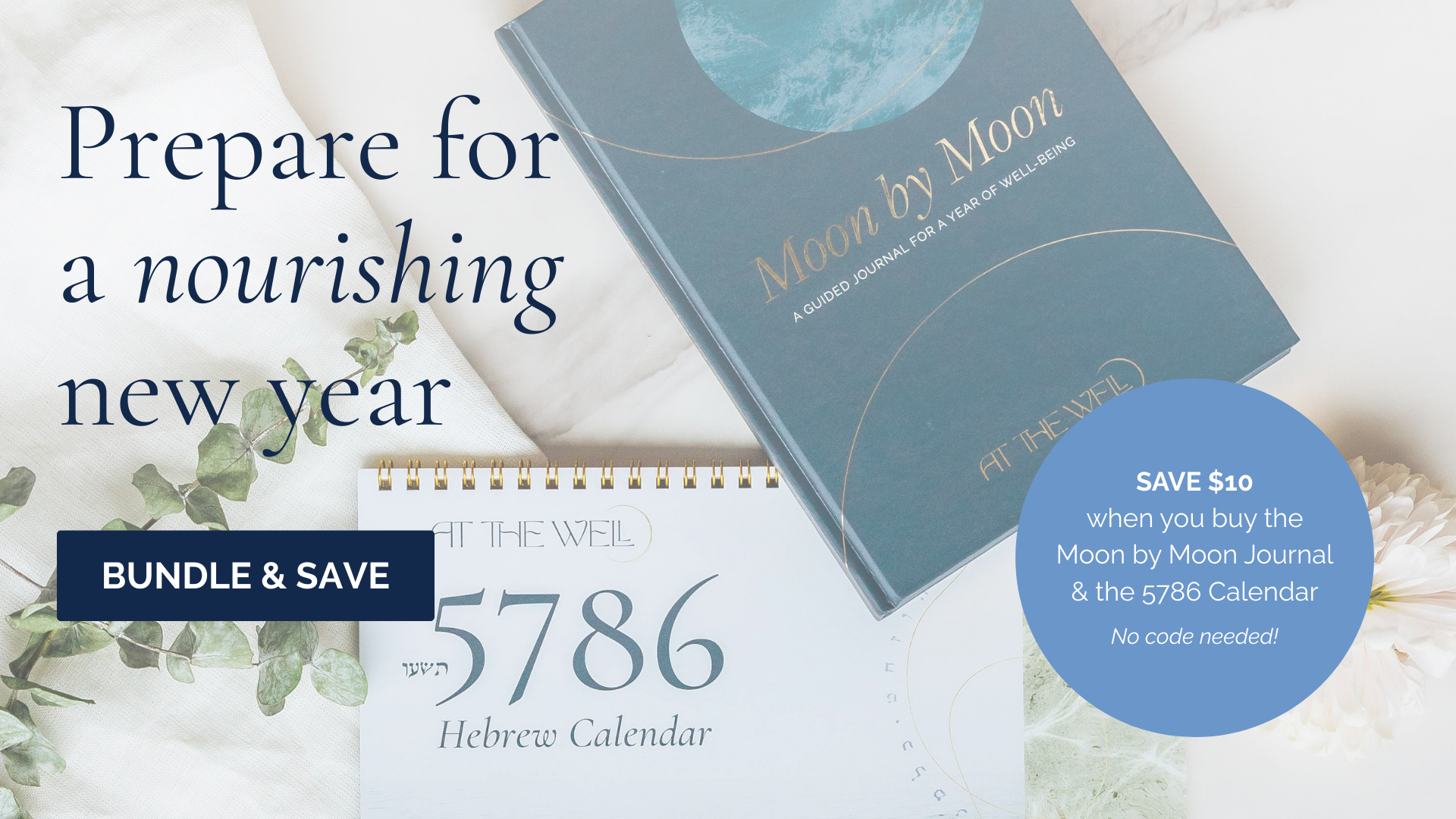Elul has always been one of my favorite months in the Hebrew calendar. Out of all the vast wisdom that Jewish tradition holds, this month’s teachings are some of the absolute most vital for our spiritual and physical well-being. Elul speaks to a deep and universal human need: it gives us a path to heal the harm that we have experienced and the harm that we have caused.
As the final month in the Jewish calendar year, this is the season set aside by our Sages for us to turn inward, take stock of our lives, and notice when we have missed the mark. (“Missing the mark” is a Jewish interpretation of when we have failed to show up as the best versions of ourselves, or have broken our commitments.)
This is the time for looking back — and seeing what we need in order to move forward.
The self-reflection of Elul is a spiritual awareness practice, not a judgment practice. We turn towards ourselves with honesty, with love, and hope for growth. As we meet ourselves in this movement and review our lives through a lens of lovingkindness, we get the opportunity to step into alignment with our most authentic selves and in deepest partnership with our communities and the oneness of the world.
Growing up, I was taught to always reflect and ask for forgiveness from those close to me each fall before “the gates of heaven closed” at the end of Yom Kippur. This process has become embedded into my sense of the rhythms of the year. I have wondered what my community and even the world might look like if we turned the month of Elul into a truly collective practice.
What if it became completely commonplace that, every fall, the entire world would do this spiritual work at the same time, together, out loud and in our own hearts? What reconciliations might we see? What new understanding and compassion could flourish? What human potential might we achieve?
What I love is that the techniques we practice in Elul are wise, adaptable, unique, and open to all. Jewish wisdom offers a roadmap desperately missing from our modern life, allowing us to reach a place of forgiveness for ourselves and others.
This month, thousands of us will undertake a journey into profound personal transformation, held in the safety of a community focused on our shared care. As we look into the places where we have each “missed the mark,” we will recognize our humanness, approach our imperfections, and move forward alongside each other. In doing this, we are each creating healing and recommitting to living our towards our highest selves.
This year, of course, the idea of stepping into a month of forgiveness feels heavier than usual. After the horror of October 7th, and the losses and destruction we have witnessed in its wake, we have all been changed. In our hearts, we carry memories that no one should face. And because we are each meeting this moment in our own ways, with our own priorities and pain, we are finding profound disconnection within our families and communities.
Already, as of 2020, 55 million Americans have at least one estrangement in their families, sociologist Dr. Karl Pillemer reports in his book Fault Lines: Fractured Families and How to Mend Them. In the years since that number has only risen. Personally, I’ve felt the pain of fracturing relationships with family, friends, community leaders, and even people who, just a few years ago, danced at my wedding. And I know I’m not alone.
Some pain might not be possible to forgive. Some rifts will take longer than a month to heal and create justice. That’s natural. This month of Elul allows us to open up a space for reconciliation — in the relationships where repair is possible. Day by day, we can begin to take ownership of our words and actions, and to find the language for our most complicated feelings.
I’ve seen firsthand the beauty and possibility that Elul can reveal. Years ago, when a close friend and I were struggling through the most challenging time in our relationship, we used Elul as an opportunity to commit to talking to each other throughout the whole month. We studied lines of sacred text about Elul and then used it as a jumping-off point for our conversations. The text allowed for us to open up, begin to share, and to have tough conversations with love. Jewish wisdom became our medicine for reuniting, and I got to experience firsthand the flood of love that can pour in to fill a rupture when we find ourselves able to forgive. It is life-affirming and nourishing for our wholeness.
We invite you to journey into the Season of the Heart with the reminder that, although this is personal work, it doesn’t have to be lonely. In fact, Jewish wisdom teaches us that we are each doing our individual work alongside each other, in deep community with other people and, of course, the Divine.
Together, we are partners in stewarding the world to come. Together, we are taking ownership of the journey into and through the year ahead, 5785. This Elul, I’m dreaming of everything that might be possible if each one of us committed to healing our relationships with one another, with ourselves, and with the land that sustains us.
If we could do that, as a society and as a world, just imagine what else could be possible. We each can take small acts towards this, and collectively it will make a big impact. Join me.
With hope,
Sarah Waxman
Founder & CEO, At The Well

